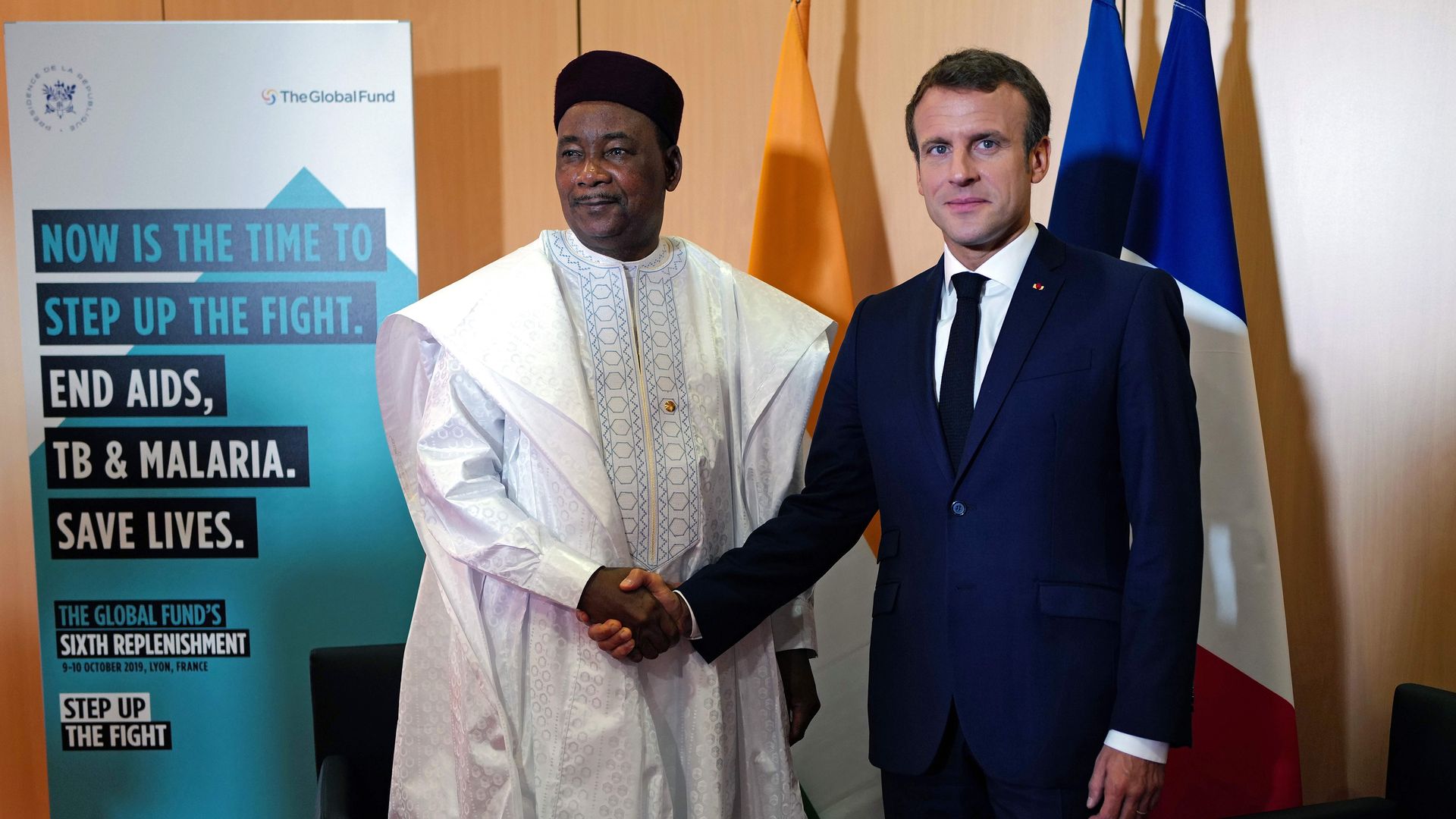New Global Fund commitments resist pressures on public health backing
Add Axios as your preferred source to
see more of our stories on Google.

Nigerien President Mahamadou Issoufou and French President Emmanuel Macron the Global Fund conference on Oct. 9, 2019. Photo: Olivier Chassignole/AFP via Getty Images
A record $14 billion in commitments made last week to the Global Fund to Fight AIDS, Tuberculosis and Malaria could help the multilateral health partnership save up to 16 million lives while halving mortality rates from the illnesses it targets.
Why it matters: Very few countries are on track to reach the United Nations 2030 Sustainable Development Goal targets for HIV, TB and malaria. The new commitments mark a 15% increase from the previous replenishment three years ago and reflect greater prioritization of preventable disease.
What's happening: This successful replenishment benefitted from pressure by French President Emmanuel Macron and other leaders to secure support from an unprecedented number of implementing countries.
Yes, but: It comes as global multilateral organizations find themselves treading water amid a recent rise in complacency and nationalism.
- The development community has to some degree suffered from its success, leaving a distracted public less alert to the ongoing crises around global health that span international borders.
- The U.S. Congress, for example, held well over a dozen hearings on the global AIDS crisis at the height of the epidemic but just one in the past seven years.
- Although the U.S. is the world's largest global health donor, a recent budget proposal would reduce that funding to its lowest level since 2008.
How it works: The Global Fund, which connects governments, health organizations and the private sector to help low-income countries treat and prevent disease, reported in September that it has saved over 32 million lives since 2002.
- The Fund incentivizes countries to increase domestic spending on health care, fortifying their health systems against disease outbreaks like the current Ebola emergency in the Democratic Republic of Congo.
- It also works to improve health care access, especially for young women and girls across sub-Saharan Africa.
What to watch: This round of commitments now has to be backed up with real dollars from donor countries, where some argue those funds would be better spent at home.
- Gavi, the Vaccine Alliance, could face similar headwinds in its scheduled replenishment next year.
The bottom line: Funding multilateral health organizations has become harder in recent years, but this round of financing for the Global Fund is proof that global cooperation can still be marshaled.
Gayle E. Smith is the president and CEO of the ONE Campaign and a former administrator of USAID. ONE’s sister organization, (RED), mobilizes funds from the private sector to the Global Fund.
